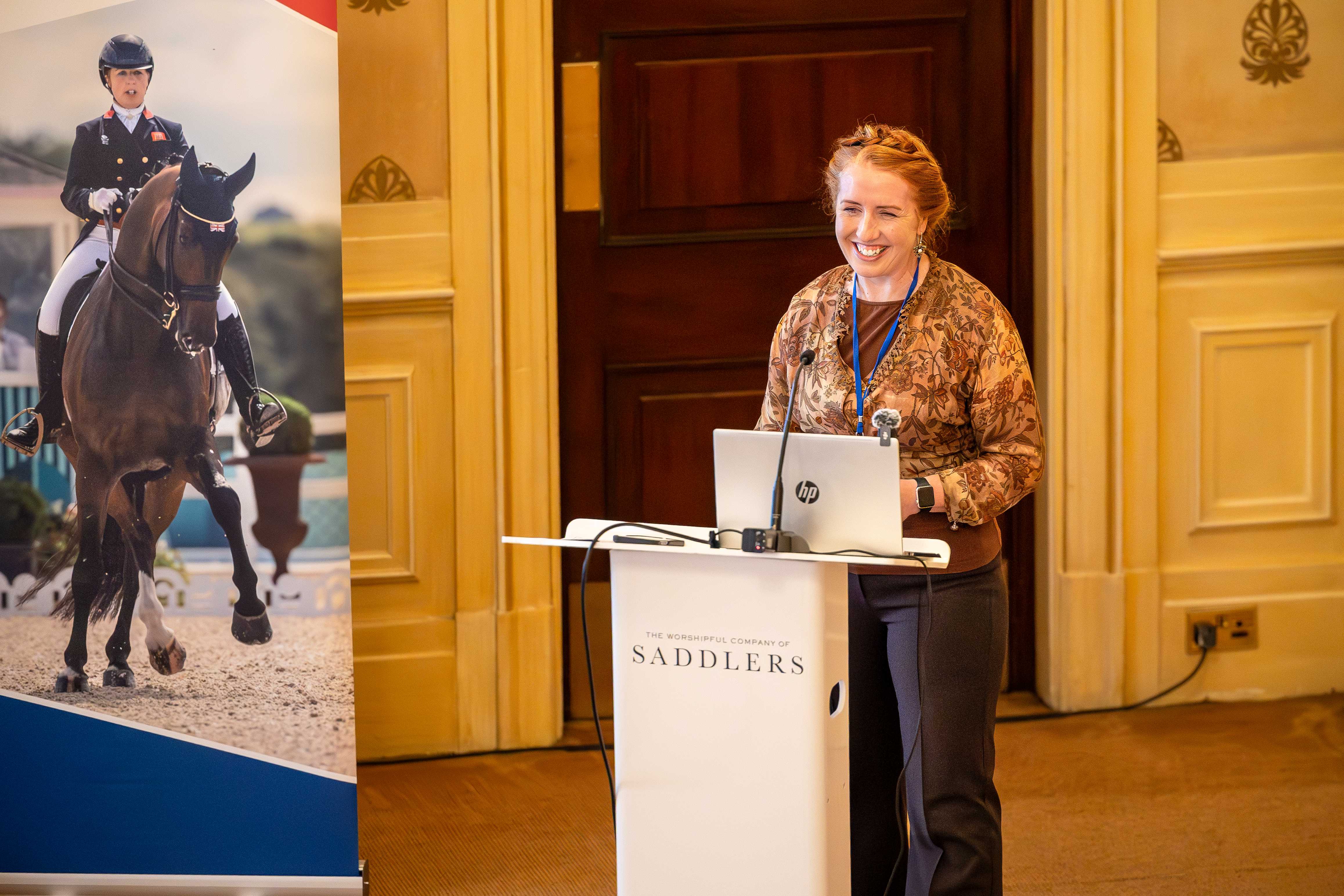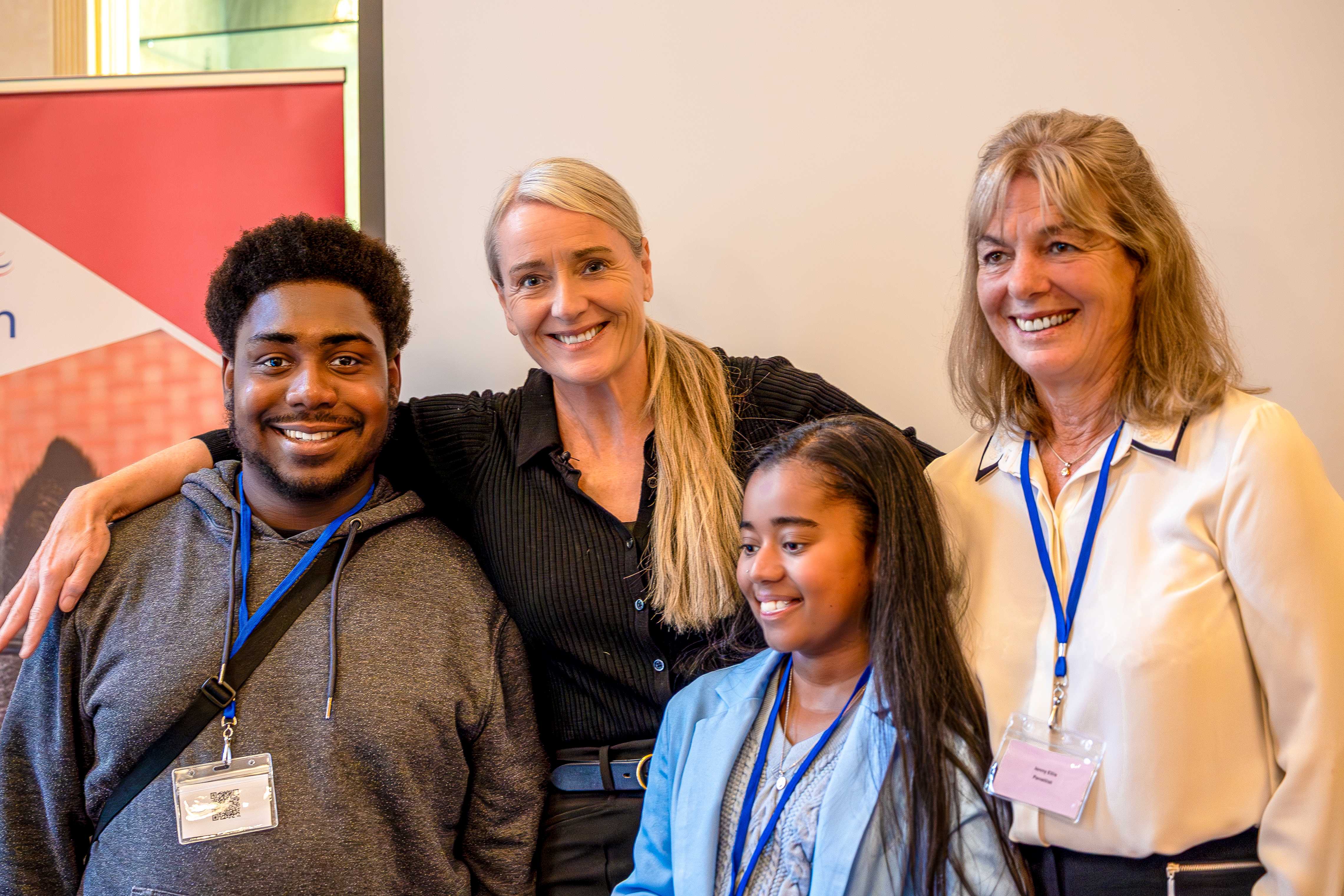News
The power of horses: Equestrianism generates £1.2 billion in social value each year
Wednesday, 08 October 2025
On Friday 3 October, British Equestrian proudly unveiled groundbreaking new research that, for the first time, puts a clear monetary value on the impact of equestrian activity in the UK.
In partnership with leading social value specialists State of Life, the findings reveal that equestrianism delivers £1.2 billion of social value annually, with each riding centre providing an average of £292,000 worth of value per year. Those who regularly interact with horses know the benefits well, but these figures provide measurable evidence of our sector’s role as a national wellbeing resource.
The UK government defines social or public value as “all significant costs and benefits that affect the welfare and wellbeing of the population” (HM Treasury ‘Green Book’, 2020). It includes both the direct benefit and value to individuals of improved wellbeing and the wider value to society, including the state.
The research
Our social value research project began last year when, following a tender process, a research team from Sheffield Hallam University and the Sport and Recreation Alliance conducted a systematic search of academic databases, supplemented by a call for evidence. This resulted in an overwhelming response of submissions, gathering 856 pieces of published literature and case studies.
After a thorough screening process, 290 of these pieces of evidence were included for the final analysis, a significant portion of which focused on equine-assisted therapy and its transformative effects on participants. The literature review identified compelling evidence of equestrianism’s positive contributions across the five social outcome areas of physical health, mental health, subjective wellbeing, individual development, and social and community development. It showed that equestrianism's impact reaches far beyond individual participation, generating significant savings to public services and making a vital contribution to national wellbeing.
The full findings from stage one of the project are available here.
The research findings became the basis for second stage of the project, which began in May 2025, when we partnered with State of Life to draw on stage one findings, plus sector-level and national data, to calculate a monetary figure on equestrian social value and show that equestrian activity can be a vital contributor to public health.
This stage of research measured three key forms of engagement:
- On-horse activity
- Off-horse activity
- Volunteering.
The headline findings
- Total annual social value of equestrian activity in the UK: £1.2 billion
- 25% of this is generated by riding schools, with an average social value of £292,000 per school
- On-horse participation: £2,000 per year for an adult riding twice monthly; £3,500 per year for a young person riding weekly
- Off-horse participation: £2,000 per person, per year
- Volunteering: £2,100 per year for weekly volunteering; £1,000 per year for monthly volunteering.
Read the summary report: The Power of Horses: Social value of equestrianism
The stories behind the data
The findings were revealed at our launch event at Saddlers' Hall, London on Friday 3 October, to a capacity audience that included representatives from across the sector, government and stakeholders. Hosted by BBC's Sonja McLaughlan, the event brought together the research teams, who presented findings from both stage one and stage two of the project, and a series of panels that showcased lived experiences of the power of equestrianism.
The day provided an encouraging space for discussion and plenty of questions around the topic of social value, whether discussing the top-line figures or delving deeper into some of the powerful stories told by our speakers, who have all personally experienced the true value of horses and what our sector has to offer.
Keynote speaker Becky Moody gave an insightful talk, supplemented with a carousel of nostalgic photographs, about her journey in the equestrian industry, starting as a young Pony Club member and through the many turning points in her career. The key theme throughout was how in times of stress or anxiety, notably when she found out she was to make her senior championship debut at the Paris 2024 Olympic Games, time with her horses give her a safe space.

Pictured: Keynote speaker Becky Moody (Credit: Kirsty Pasto)
Our two discussion panels, which included people who have all had real experience of the true power of horses to change lives, added a new level of meaning behind the statistics within the research.
One member of the panel, Jehmar Jonas, spoke of his difficult experiences as a young boy growing up in a troubled area and losing his brother to knife crime. He found horses through Ebony Horse Club in London and now plays polo. Jehmar is now a youth worker and witnesses the special interactions even those most troubled can have with the horses.
“I feel like, in my journey of healing from a lot of the things that I've witnessed and a lot of the things I've experienced, if it wasn't for those touchpoints of horses and places like Power of Polo and Ebony Horse Club, I wouldn’t be sitting here," said Jehmar.
Khianna Lucas-Young spoke of how, after battling leukaemia and other health conditions that left her paralysed and blind, she now rides with the Riding for the Disabled Association (RDA) and is grateful for the incredible volunteers who help her every time she rides.
“It's just a safe haven and it definitely did save me," she said. "Mentally, physically, in every way, shape or form, I owe everything to the RDA.”
See more of Khianna’s story here.

Pictured: Jhemar Jonas, host Sonja McLaughlan, Khianna Lucas-Young, Jenny Ellis (Credit: Kirsty Pasto)
Our project showcase panel included speakers from Wirral Riding Centre who host The British Horse Society’s Changing Lives Through Horses programme, and Park Lane Stables RDA, who have both supported many people who need support through tough life events, helping them gain confidence, support and a trusting community. Kayleigh Harris from Sport in Mind spoke about the charity's partnership with British Equestrian and how introducing this new sport has not only offered participants physical activity, but provides the opportunities to build unique relationships with the horses and a new passion for many.
British Equestrian extends its thanks to the Worshipful Company of Saddlers for the use of their Hall to host this event, and to our inspiring speakers who brought raw honesty and to all the guests who attended and joined the important conversations.
Why it matters
This project marks a recognised way in how we understand and communicate the value of equestrian activity. It offers both narrative and numerical evidence that show equestrian activity is more than just recreational – it’s a contributor to national wellbeing and a strategic asset for social development.
The findings demonstrate the crucial role of equestrian centres as local hubs with national impact. They are where the majority of new journeys into our community begin, where volunteers give their time and where careers are built. Protecting these centres is vital for the sustainability of our sector and ensuring more people can experience the health and wellbeing benefits horses provide.
Importantly, equestrianism reaches audiences often underrepresented in other sports, including women, older adults, people from lower socio-economic groups and disabled people. This positions our sector as a powerful and accessible way to bring the benefits of physical activity in green spaces to communities who might otherwise be excluded.
Jim Eyre, CEO of British Equestrian, said, “This research marks a significant milestone for the equestrian sector – the beginning of a new stage, where we are able to clearly demonstrate our contribution to public health and wellbeing. For the first time, we have solid, measurable evidence defining the true impact of equestrian activity for participants, volunteers and communities, while delivering real savings to public services. It provides the federation with a powerful platform to ensure equestrianism is recognised as a proven, accessible way to support the nation’s wellbeing.”
Looking ahead
This report marks a turning point for the equestrian sector. It provides the evidence base we need to amplify the extensive benefits of equestrian activity, champion our role in national wellbeing and ensure equestrianism is recognised as a key player in the future of sport, health and community development.
Abigail Bevan, Insight and Research Manager at British Equestrian, looks forward to what this research means for the future: “It’s exciting to share the results of this project. This work is a vital step forward to show just how important data and insights are in supporting the sustainability and growth of our sector, meaning we can clearly demonstrate our impact on society and make a strong case for the role we play.
“It’s essential we continue to build on this knowledge to grow our impact and give more people the chance to experience the incredible power of horses. We hope it becomes a unifying tool for the sector, helping us align our messaging, advocate more effectively and work in partnership with government and other sectors to ensure our value is fully recognised and supported.”
With this and further research, we continue our vision for a unified, sustainable equestrian community centred on love and respect for horses, where they thrive in their bond with humans.
Latest News
- 19 February 2026
- 16 February 2026
- 09 February 2026
- 05 February 2026
- 05 February 2026
- 04 February 2026
- 04 February 2026
- 02 February 2026
- 30 January 2026
- 19 January 2026
- All News